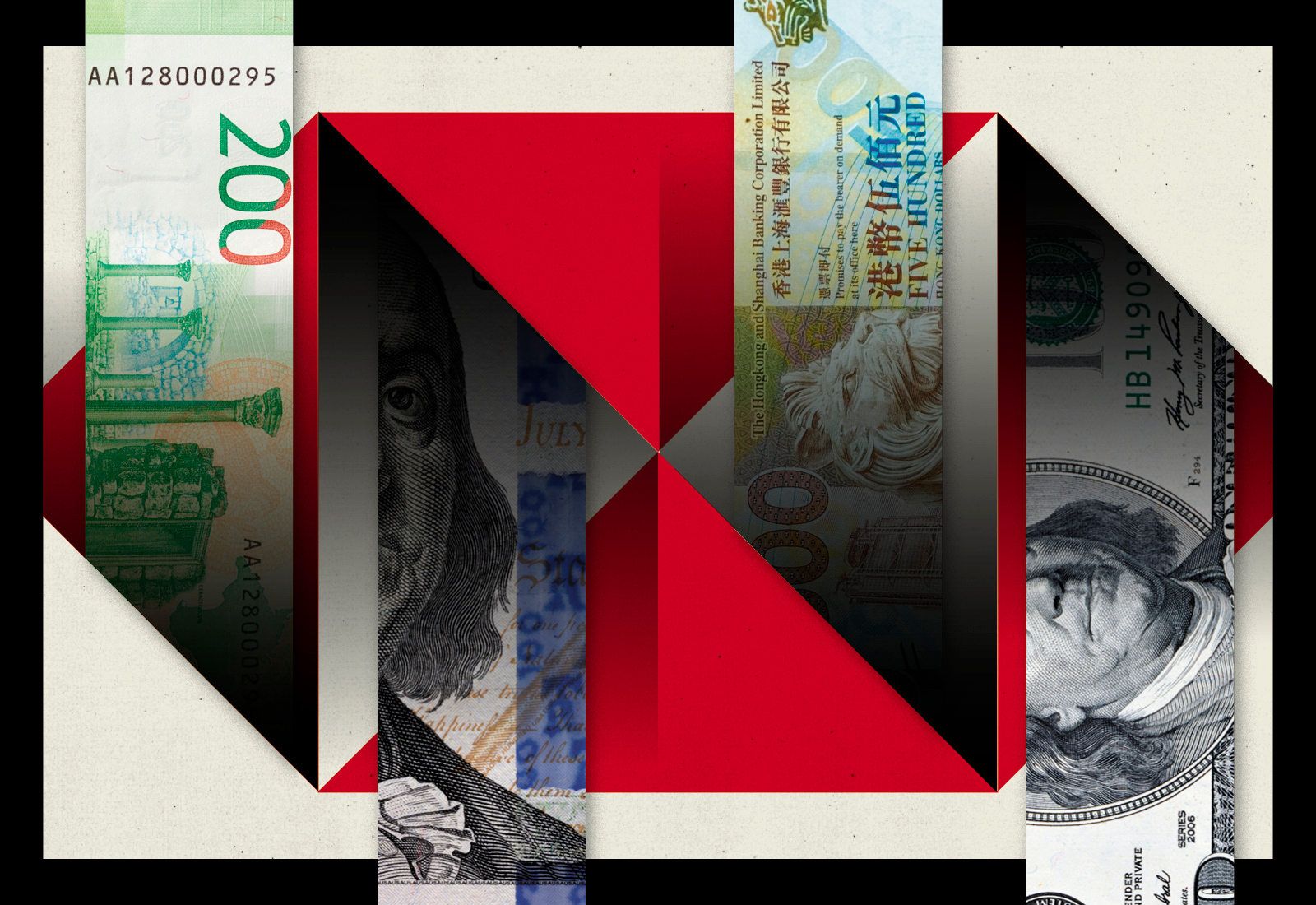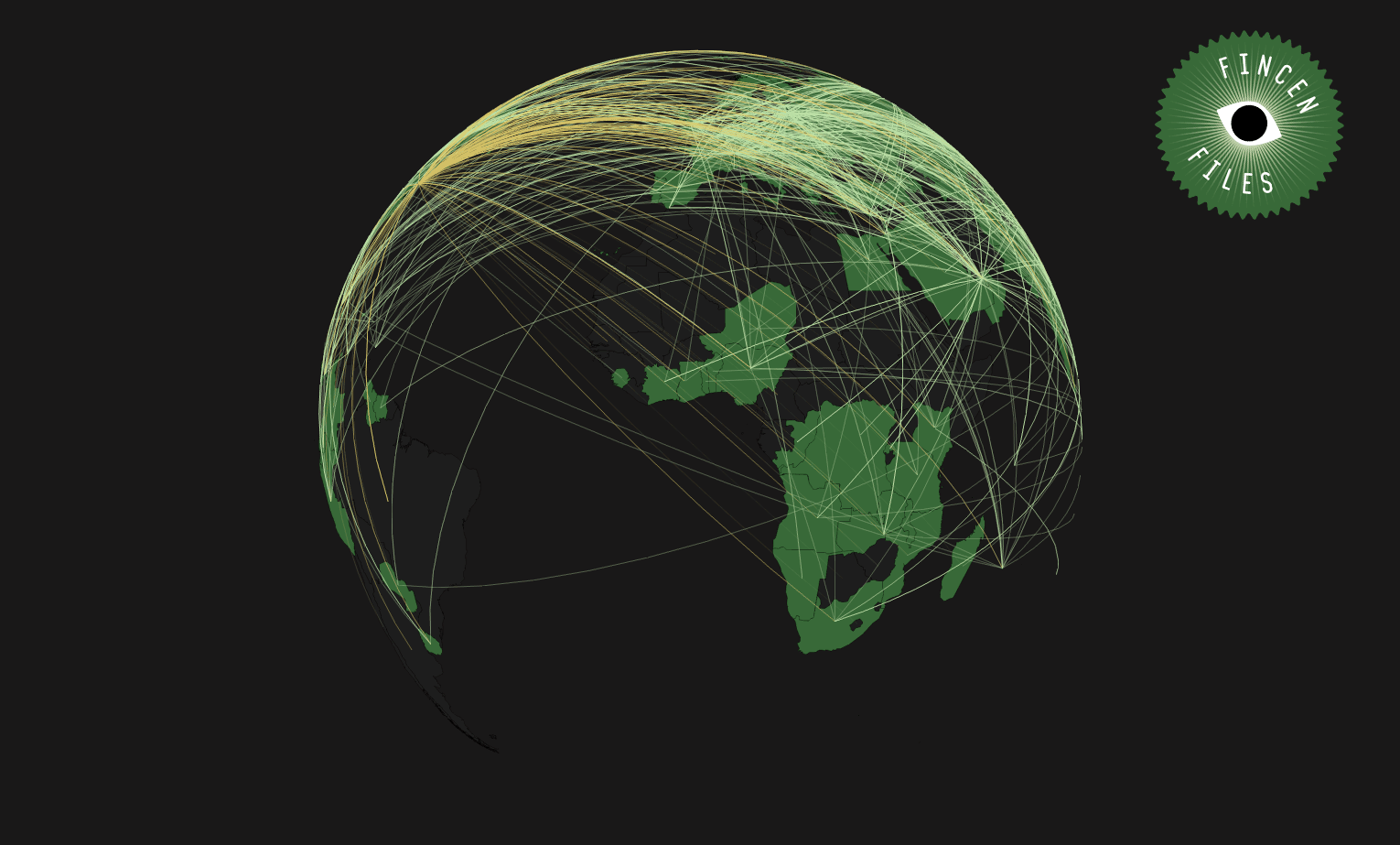PRIVATE BANKING
‘Wired to make money’: Barclays’ private bankers serve ultra-rich, as watchdogs sound alarms
The FinCEN Files investigation exposes tensions between British bank’s New York and London operations.
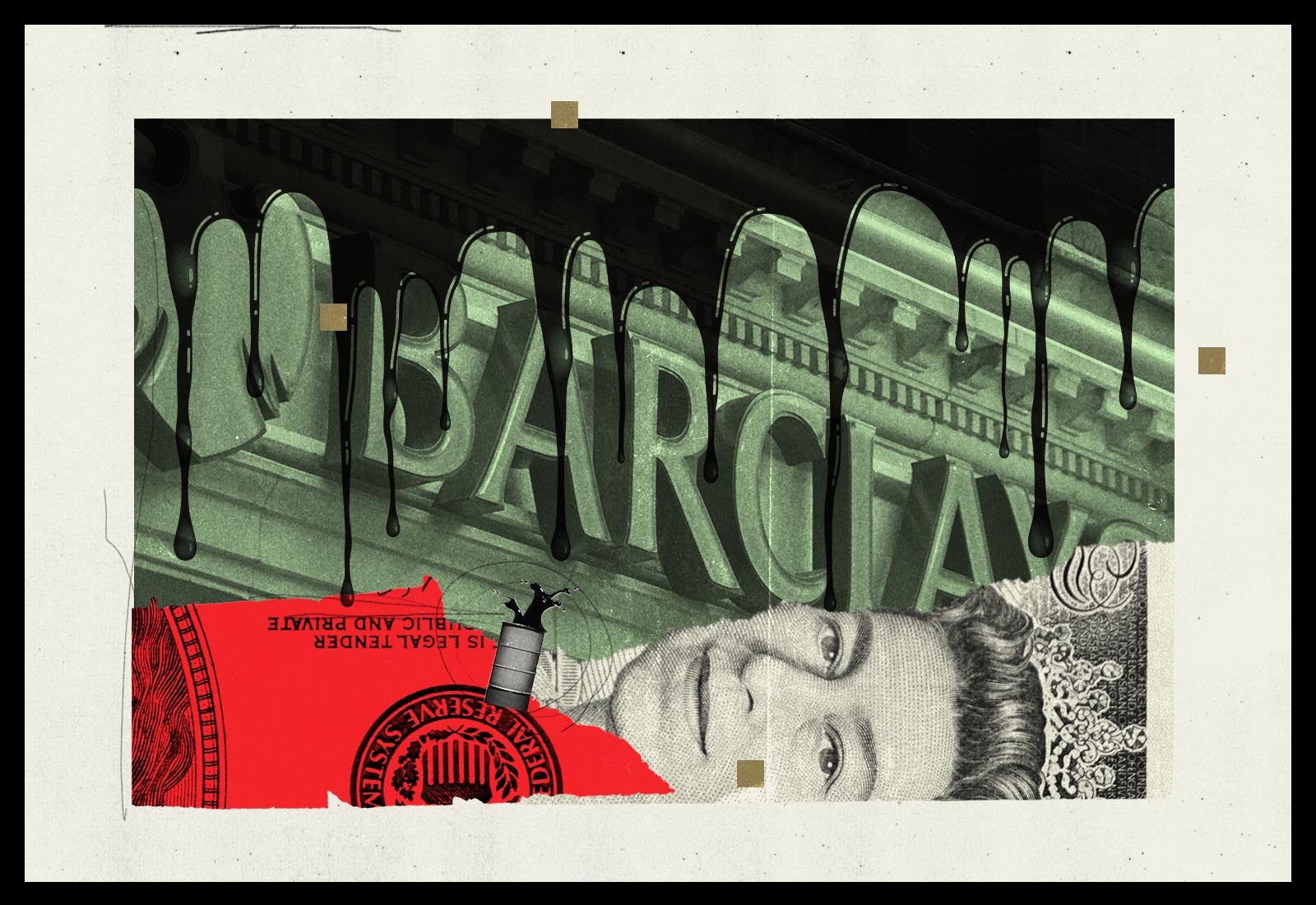
Ivor Ichikowitz recoils at the arms industry’s “reputation for being very cloak-and-dagger.”
“We are not in the destroying-anything business,” the 53-year-old founder of South African arms company Paramount Group told CNBC a few years ago. “We’re in the protecting business.”
His bankers at Barclays, the global financial group based in the United Kingdom, have been happy to have his business, profitably moving hundreds of millions for Ichikowitz and his companies.
But in recent years in-house watchdogs at Barclays have sounded alarms about corruption allegations involving Ichikowitz, raising questions about whether he engaged in the kind of secretive maneuvers he bristled about in public. They flagged more than $430 million in transactions, which moved through the bank for more than five years beginning in August 2011 as suspect, according to closely guarded suspicious activity reports, known as SARs, that were obtained by BuzzFeed News and reviewed by the International Consortium of Investigative Journalists.
After firing off several warnings to the U.S. Treasury Department’s Financial Crimes Enforcement Network, known as FinCEN, Barclays hired an outside private intelligence firm co-headed by former British spy Christopher Steele to dig deeper. The resulting brief raised even more red flags, citing sources who said Ichikowitz had parlayed political donations into military contracts in South Africa, according to a report Barclays sent to FinCEN.
Banks are required to exercise greater care when serving politically-connected clients who are viewed as more vulnerable to bribery or corruption because of their senior positions, the countries they reside in or their industries. Sometimes, banks flag their money movements, not necessarily because the transactions are suspicious, but rather because of general concerns about clients and their businesses.
Barclays in New York “remains concerned with Ichikowitz and his companies’ source of wealth and Ichikowitz’s possible involvement in bribery and corruption,” compliance officers wrote in the December 2017 SAR.
The documents, part of a larger leak known as the FinCEN Files, offer an unparalleled view into how controls within large global banks intended to keep tainted money from moving around the globe collide with their overriding imperative to churn out bigger and bigger profits. The reports also point to a regulatory regime unequal to the task of policing banks’ profit-driven movement of illicit cash.
“Bankers are wired to make money. They don’t want to say no,” said Paul Pelletier, a former senior U.S. Justice Department official and financial crimes prosecutor. “In order to get banks to behave, there has to be sure and swift enforcement against bad actors. And that is not what is happening on the ground.”
The suspicious activity reports shed rare light on apparent conflict within a global bank about how to treat notable high-profile clients linked to corruption scandals, but never formally charged with wrongdoing. The tensions often pit bank compliance officers, who are charged with alerting authorities about suspicious money flows against private bankers who trophy-hunt for wealthy clients.
The frictions can even result in divergent approaches to the same client within different parts of a bank.
In 2017, even as Ichikowitz’s and Paramount Group’s money continued to course through Barclays, its corporate division moved to sever ties to a company linked to Ichikowitz because it was “outside of [its] risk appetite”, according to the suspicious activity report.
Moving suspect money for politically-exposed persons, known as PEPs, can lead to fines or worse. Just two years before, in November 2015, a U.K. regulator fined Barclays $109 million for failing to properly vet some of its risky, politically-connected clients, going to “unacceptable lengths to accommodate” them.
SARs reflect the concerns of compliance officers and are not necessarily indicative of criminal conduct or other wrongdoing.
The reports describing money flows from Ichikowitz’s businesses were included in a batch of more than 2,100 suspicious activity reports requested by the U.S. Congress as part of the investigation into Russian interference in the 2016 election.
Concierges to the global wealth set
The FinCEN Files pull back the veil on the discreet world of private banking, which consulting giant McKinsey & Co. in 2019 described as “the most profitable sector in the global banking industry,” attracting the likes of some of the biggest banks in the world, including Barclays, and some smaller players such as Swiss-based Julius Baer.
Unlike investment bankers, who are charged with selling stock or engineering game-changing merger deals, private bankers are tasked with trawling for wealthy clients, luring their riches to the bank.
Ever since the 2008 financial crisis, private bankers — who compete to manage about $200 trillion in global personal wealth — have become more important to banks. In 2018, private banking contributed “a sizable 5 to 6 percent of profits,” McKinsey said.
Private bankers go to extraordinary lengths to pander to rich clients. They serve as personal concierges to the global wealth set, scoring hard-to-get tickets to sporting events and concerts. For the super-elite, they can go even further. The five-star treatment provided by one bank has included stays at a magnificent vacation property in Uruguay’s seaside resort town Punta del Este.
More important, they lavish on clients an array of financial perks and services — including access to hot initial public offerings of stock and attractive loans such as Donald Trump extracted from his private bankers at Deutsche Bank.
Such attention to clients can pay off — and bring risk.
Nine billionaires who have appeared on the Forbes list of richest people in the last decade moved money through Barclays between 2009 and 2017 that was later flagged as suspicious, the FinCEN Files show.
An enduring challenge even for banks trying to follow money trails is grappling with an entire industry set up to cover tracks. The wealthy and well-connected can easily set up companies in offshore jurisdictions where secrecy is a selling point. They are helped by an army of enablers; among them, private bankers who connect clients to firms that create trusts or offshore companies.
“The real growth of the global financial secrecy industry worldwide has been powered by the premier first-world banks,” said James S. Henry, former chief economist at McKinsey & Co. and now a global justice fellow at Yale University.
Henry, drawing on new data from the Organisation for Economic Cooperation and Development, together with information from the United States, estimated that as of the end of 2019 roughly $50 trillion of financial wealth was invested offshore and virtually tax free through more than 100 secrecy jurisdictions.
Of course, financial institutions declare that they have safeguards designed to check illicit money flows.
“Financial crime weakens financial institutions and we have a shared interest, in addition to our legal obligations, to prevent it,” Barclays said in a written statement to ICIJ. “Financial crime is, by its nature, complex and difficult to detect.”
Barclays declined to answer questions about specific clients and transactions, citing the confidential nature of suspicious activity reports.
Barclays said it continues to investigate and monitor account activity after SARs are filed, working at times with law enforcement. In most cases, accounts are not closed after SARs are filed, the bank noted.
“If we conclude we have financial crime concerns we take appropriate action and have done so in numerous cases over the years,” Barclays said. Terminating client relationships only happens “after careful and objective investigation and analysis of the evidence, balancing potential financial crime suspicions with the risk of ‘de-banking’ an innocent customer.”
Barclays added that it has “complied with all our legal and regulatory obligations including in relation to U.S. sanctions.”
Bankers versus compliance
An imbalance of power works in favor of private bankers, those well-rewarded servants of the very rich, and against the banks’ lower-paid compliance officers, who are often disparaged within firms as back-office bureaucrats.
The gulf is particularly stark in Europe. Before the 2008 financial crisis, compliance was a backwater profession attracting people with lesser qualifications, said Andrew Samuels, who worked for Barclays in London from 2015 to 2016 as a program manager for whistleblowing and investigations. The job Samuels held is common in banks and involves investigators fielding tips from employees and assessing the risks some clients and transactions can pose.
Samuels is now chief executive of WisIPort, which helps companies with whistleblowing and compliance initiatives. He said there’s a lot of tension between “the new sheriffs — the more visible, more professional compliance officers” — and the private bankers, interested in acquiring more clients and assets.
The bankers’ resistance to following the rules is encouraged by the weakness of the Financial Conduct Authority (FCA), the United Kingdom’s primary overseer of banks such as Barclays. Since 2007, financial institutions including Barclays, Deutsche Bank and Standard Chartered Bank have paid a little more than $500 million in fines in the U.K. for money laundering violations— a pittance compared with the billions of dollars in profits most global banks generate in a year.
Critics say the FCA gamekeepers keep a lax eye on poachers and show little interest in pursuing whistleblower tips.
“The people who investigate the allegations of whistleblowers are often people who have been through the revolving door, in and out of banks and the regulator,” Norman Lamb, a former member of Parliament, said in 2019.
Barclays had 14 revolving-door connections in the U.K. government, making it the second-most connected company after Deutsche Bank, according to an April 2009 report by the Organisation for Economic Cooperation and Development.
A spokesperson for the FCA disputes the suggestion that there has been a lack of enforcement, noting that since 2017 there has been a “significant increase” in the number of open investigations.
The FCA assesses every whistleblower tip it receives to determine what action to take, the spokesperson added, and he said that the revolving door allegation is inaccurate. “FCA investigators are for the most part longstanding enforcement professionals and none of the FCA’s enforcement senior management have worked in banking,” the spokesperson said.
While U.S. regulators have been criticized for fecklessness, they are more aggressive than their U.K. kin.
The different regulatory approaches might help explain why a bank headquartered in the U.K. holds on to a risky client even though its compliance officers in New York are telling U.S. authorities all about their concerns with the same client.
“If bankers can override the compliance people willy-nilly that is a huge flaw in the system,” Pelletier said. “Why do you have compliance people then?”
“Little Book of Wonders”
Private bankers woo their rich clients with special perks and extra pampering.
Barclays boasts of the “Little Book of Wonders,” “an invitation-only service that offers incredible experiences.” Among them: a day of hot-air ballooning, a getaway to an ultra-luxury villa in the Maldives — and someday, perhaps, a space holiday with Virgin Galactic.
For clients who may already own an island, the “gives” can be subtler. Barclays gave a coveted spot in a work-experience program to a nephew of an executive of an important private client in Asia after the nephew wasn’t selected for a merit-based internship, according to a U.S. regulator.
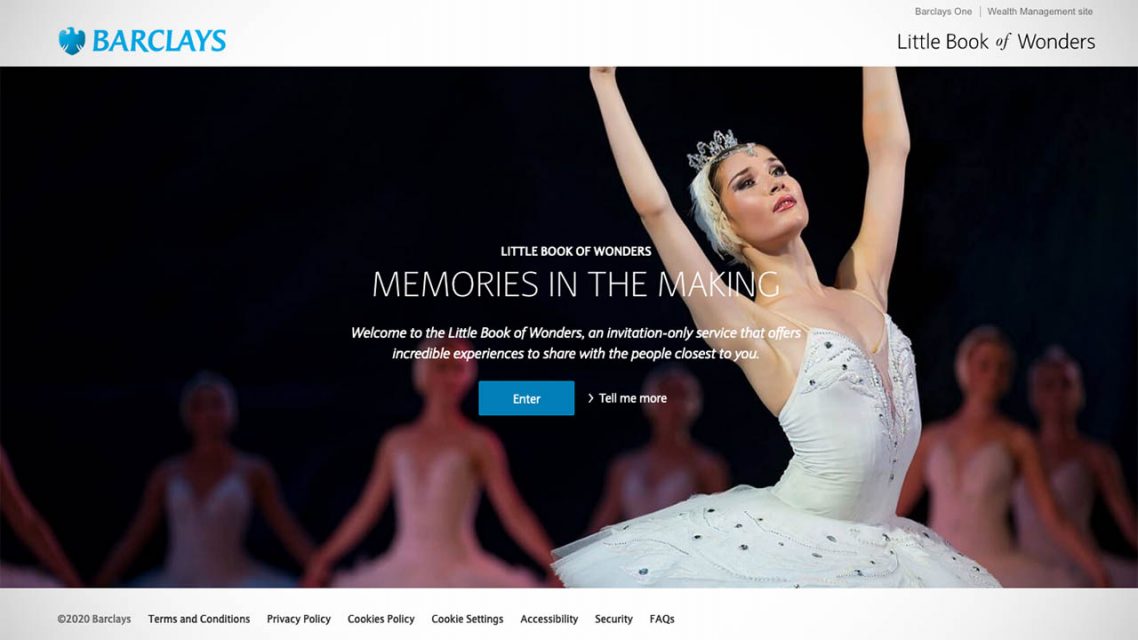
The ultimate giveaway is secrecy. In the November 2015 case in which Barclays was sanctioned for not properly screening clients, the bank “did not obtain information that it was required to obtain” from high-risk “politically exposed” clients involved in a nearly $3 billion investment, the FCA said.
“Barclays did not do so because it did not wish to inconvenience the clients,” the FCA said.
Details of the clients and the transactions were not kept on Barclays’ computer systems. Funds for the investment were sent in more than 20 separate transfers. Barclays was led to believe the names of the clients would be identifiable on the transfers but they were omitted. Barclays should have “challenged the omission of such information” and recognized that it posed a “higher risk of financial crime,” the FCA said.
The 2012 investment, known internally as an “elephant deal,” was the largest of its kind that Barclays had executed for individuals, yielding revenue to the bank of more than $75 million, according to the FCA.
Barclays even agreed to indemnify clients for up to $58 million in the event the bank failed to live up to the promise of secrecy. “Barclays applied a lower level of due diligence than its policies required for other business relationships of a lower risk profile,” the FCA said.
The U.K. regulator said it made no finding that the transaction involved a financial crime. A spokesperson for Barclays said that since 2015 the bank’s “internal control functions have been subject to a long-term enhancement programme which completed in March 2020.”
In the world of banking, the chummier the client ties the better. At Deutsche Bank, bankers strived to pass the informal “fridge and beer test.” The idea was that a banker who didn’t have to ask where the fridge was in a client’s house and who could simply go and get a beer, was in the inner circle, said a former banker.
Bradley Birkenfeld, who worked as a private banker in Geneva from 1996 to 2006, was in that circle. For one client, he brought diamonds into the U.S. in a tube of toothpaste, according to a 2008 federal court document.
During his banking heyday, Birkenfeld’s life emulated that of his clients. He drove a red Ferrari to his chalet in Zermatt, which had an unobstructed view of the Matterhorn, he told ICIJ. He cruised for wealthy clients at Formula One races in Monaco, at horse races, vintage car auctions and charity galas, all on the company tab.
He persuaded an employer, Swiss bank UBS AG, to be a major sponsor of the St. Barths Bucket Regatta, a superyachts race in the Caribbean. “We were smoking Cuban cigars and drinking cognac on every boat,” he recalled. “It was the best way to get to the richest people on St. Barths.”
In 2007, Birkenfeld told U.S. authorities about thousands of illegal offshore accounts UBS held in Switzerland for U.S. citizens. He served two and a half years in prison for helping a wealthy UBS client evade taxes, but he walked away a rich man. In 2012, the Internal Revenue Service awarded him $104 million for exposing UBS’s practices. “I went from private banker to private client,” he quipped to ICIJ, speaking from his home in Malta.
Friends in high places
In the spring of 2017 Orbis Business Intelligence Ltd., based in London, wrote a brief for Barclays U.K. Wealth on Ichikowitz’s business dealings, as part of the bank’s review of its politically exposed client.
Orbis advertised that it offered senior executives strategic insight and investigative services to help protect their interests around the globe. Orbis co-founder Christopher Steele had become famous for an unverified dossier written during the 2016 presidential campaign on then-candidate Donald Trump’s Russian connections.
It’s not clear how Barclays reacted to the report from Orbis. But the bank’s suspicious activity reports cited concerns raised in the brief that Ichikowitz had parlayed relationships with Malawian and South African leaders, including former South African President Jacob Zuma, into arms contracts.
“Ichikowitz benefits from his donations to the [African National Congress, Zuma’s political party] by being awarded major contracts,” Orbis stated, citing sources it interviewed, according to the Barclays filing.
Orbis declined to comment.
A lawyer retained by Ichikowitz declined to comment on the specific information contained in the suspicious activity reports but noted that a SAR “is not evidence of wrongdoing or criminality.”
“Of a particular concern,” according to the Barclays SAR, was the fallout from a 2013 sale of seven interceptor boats to the impoverished nation of Malawi. The price tag, $145 million, prompted an outcry against then-President Joyce Banda.
Banda was beset by news reports that Ichikowitz’s family foundation had paid for the services of a controversial public relations firm, Bell Pottinger, to burnish Banda’s image in the West.
Meanwhile, Eric Ichikowitz, Ivor’s brother, scrambled to calm the furor. In an interview with London’s Daily Telegraph, he acknowledged that the family foundation paid the PR firm, but said there was “no relationship” between Paramount Group contracts and “any charitable work undertaken by the Ichikowitz Family Foundation.”
“The Family Foundation believes that President Banda is a force for good in Malawi and that she is striving to improve the lives of all Malawians,” Eric Ichikowitz said.
Barclays’ own review identified 29 payments, totaling $585,245, from Paramount to Bell Pottinger in 2012 and 2013. It was “impossible” to determine whether the Bell Pottinger payments were related to Paramount’s business or allegations involving Banda, Barclays wrote in the SAR.
Barclays noted that “there is no evidence to prove the actual exchange of money between Banda and the Ichikowitz brothers.”
The patrol boat contract with Paramount was announced in November 2013. Six months later, Banda was voted out of office.
“Yes, I was not happy with the contract, I don’t think we needed it,” Goodall Gondwe, the former finance minister, told ICIJ’s Malawian media partner The Nation in August. “The Attorney General however advised us to proceed with the contract” to avoid a lawsuit.
Banda in a written reply referred ICIJ to a joint statement between the Malawian government and the Paramount Group that said the boat contract was “concluded according to Malawian government processes and signed” by the finance and defense ministries. At the time of signing a legal opinion was obtained from the Malawian Attorney General.
Another concern for Barclays was Kemet Global Ltd., a private U.K. company that provides business services to other entities. “Ichikowitz had masked his ownership” of Kemet, which he used “for the administration of loans and investments on behalf of third parties,” Barclays wrote in the SAR.
Brian Menell, the chief executive officer of Kemet Global Ltd., said in an email that “the company was originally conceived as a joint investment vehicle between Mr. Ichikowitz and me” and “the shareholding was split between our respective investment vehicles.”
The original plan for the company didn’t materialize, so in 2016 the Ichikowitz shareholding was transferred to Menell, he said. “Since then Mr. Ichikowitz has had no legal or beneficial ownership in Kemet Global Limited,” he said.
Menell added that he did not “at any point give any incorrect information to Barclays Bank regarding the ownership of Kemet Global Limited.”
Barclays corporate division cut ties with Kemet in early 2017 as bankers continued moving money for Ichikowitz companies, including Paramount, documents show.
If the client is too risky for one division of the bank, that client should be too risky for all divisions of the bank
— Paul Pelletier
In rare cases, banks will keep open accounts at the request of law enforcement, for monitoring purposes. There is no indication in its suspicious activity reports that Barclays kept open Ichikowitz accounts for this reason, though it did indicate in the SAR that a law enforcement agency was interested in the dealings of Ichikowitz and his companies.
In 2017, in the seven months after the Orbis report, Barclays helped Ichikowitz and his companies move more than $24 million, an ICIJ analysis of the documents shows.
“If the client is too risky for one division of the bank, that client should be too risky for all divisions of the bank,” said Pelletier, the former Justice Department official.
Ichikowitz’s lawyer said in his email that “neither our client nor any Paramount companies have ever been subject to an investigation by the FBI or any other worldwide enforcement agency for that matter.”
Project Helium
The money transfers for Ichikowitz and his business empire followed years of regulatory run-ins that ultimately triggered a change in leadership at Barclays.
In 2010, Barclays forfeited $298 million under an agreement with U.S. and New York authorities for illegally conducting business with Iran, Cuba, Sudan and other countries on the U.S. sanctions list. One way Barclays helped clients circumvent sanctions was by removing vital identifying information from the transaction details.
Two years later, U.S. and U.K. regulators fined Barclays more than $450 million for manipulating a key interbank lending mechanism. Barclays chief executive Bob Diamond resigned a week after the fine was announced.
Barclays got a new chief executive: Antony Jenkins, a low-key British retail banker, who vowed to overhaul the bank. “What matters now is not public commitment to change but, rather, demonstrating it over time,” he said.
First, Jenkins had fires to extinguish. The U.S. Securities and Exchange Commission had ordered Barclays Wealth Americas, which caters to America’s uber-rich, to correct immediately “serious deficiencies” identified in an onsite examination.
While the SEC has not commented on the matter, an independent report commissioned by the bank revealed gaping holes in compliance at the division.
The leadership had “pursued a course of ‘revenue at all costs,’’’ the 29-page spiral-bound document said.
The report upbraided the division for making compliance the “lowest possible priority by actively blocking compliance and building a social reward structure that ignores everything not sales related.”
The bank’s handling of the report underscored its troubled culture and cast doubt on its public embrace of good corporate citizenship.
Executives within the wealth division kept the report under wraps. No electronic version was stored on Barclays’ systems because of concerns that employee comments could be highly toxic if subject to discovery in employment litigation, according to a judgment in a case later brought by a former Barclays Wealth executive who was terminated in connection with the matter.
The report might have stayed buried forever. But in the fall of 2012, a bombshell email popped up on Jenkins’ computer. It is “deeply disturbing,” read the anonymous email, “…that a Wealth cultural audit report … is being withheld” from other divisions.
Barclays launched an independent investigation code-named “Project Helium.” Omission and obfuscation plagued it from the start.
A note to Jenkins from Barclays Wealth executives made no mention of the highly critical report on compliance, according to the judgment in the case. Barclays Wealth also initially failed to provide the document to the Federal Reserve Bank of New York, which had requested the results of the division’s culture audit.
When Jenkins got the report in December, he was “appalled” by “the serious failures” of the wealth division’s senior managers, according to the judgment.
A coal miner’s son
Often differing laws and cultural norms exacerbate the frictions at banks such as Barclays.
In Switzerland, a long history of banking secrecy influences bankers and compliance officers, who sometimes prize client confidentiality over rooting out wrongdoing.
“When you are that far away, you don’t feel the effects of U.S. regulations … You are in a totally different jurisdiction,” said Birkenfeld, describing the mindset overseas.
The different attitudes can create friction between compliance officers in New York and bankers in Zurich and London over clients like the companies controlled by Ukrainian oligarch Rinat Akhmetov.
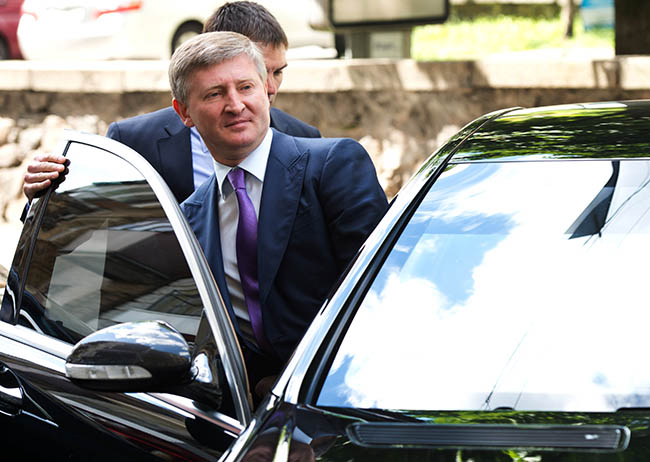
Akhmetov, a coal miner’s son, amassed a fortune by buying mining assets amid Ukraine’s push to privatize state-owned industries in the 1990s. Through System Capital Management Ltd., Akhmetov has a stake in major parts of the Ukrainian economy. He is the wealthiest man in the country and the 875th richest man in the world, according to Forbes.
Although he had supported Viktor Yanukovych, the Moscow-friendly former Ukrainian president, Akhmetov came to play a role opposing pro-Russian separatists who in 2014 bulldozed through eastern Ukraine, where Akhmetov’s mining empire is based.
Yanukovych fled to Russia in 2014 after being ousted, amid accusations that he and his lieutenants had spirited hundreds of millions of dollars out of the country via shell companies in offshore havens.
As Akhmetov’s wealth ballooned, questions about how he rose to prominence surfaced in Ukraine.
In October 2014, Barclays filed a suspicious activity report to FinCEN documenting money movements to and from Akhmetov’s companies over the previous five years.
In the report, Barclays said that in September 1999, a Ukrainian Ministry of Internal Affairs report had identified Akhmetov as a leader of an organized crime syndicate. ICIJ has reviewed a 2005 Internal Affairs report that makes the same allegation.
Barclays also noted that a 2006 U.S. diplomatic cable referred to the “Party of Regions, the political party that Akhmetov once headed and continues to finance as ‘a haven for mobsters and oligarchs.’” The cable also said the party was in the midst of an “’extreme makeover.’”
Those concerns did not stop the bank from moving money for Akhmetov’s sprawling industrial and financial holding companies.
In a written statement, System Capital Management said that the internal affairs report “has been fully and publicly shown to be a fraud and a forgery” — conclusions that SCM noted were “reached and publicly disclosed in November 2011” by a Ukrainian parliamentary committee and the Ministry of Interior.
Responding to the observations in the U.S. diplomatic cable, System Capital pointed to a 2010 statement in The Providence Journal by William Taylor, a former U.S. Ambassador to Ukraine.
The U.S. Embassy and other U.S. government agencies in Washington, D.C., have done “some checking,” Taylor said. And “we had nothing to indicate that it would be a problem for people to be dealing with Mr. Akhmetov.”
In the October 2014 suspicious activity report, Barclays’ Swiss affiliate had placed a “block” on the accounts of System Capital and System Family Management Ltd., a related company.
The report said the bank was terminating its relationships with both entities.
But the accounts remained open and active. The block, it turned out, was not a freeze. It meant that compliance officers had to sign off on transactions.
In a follow-up to its initial SAR, Barclays New York in February 2015 said that amid the current economic and political climate in Ukraine and Russia the bank “maintains concerns” that the funds transferred by Akhmetov’s companies “could possibly contain illicit proceeds.”
System Capital Management in its statement noted that “neither Mr. Akhmetov nor SCM has ever been charged with or convicted of a crime of any kind by any law enforcement agency of the United States, Ukraine or any other jurisdiction.”
The company said that when it and its affiliates established a banking relationship with Barclays Bank in 2007, the company and Akhmetov “were subject to a comprehensive due diligence examination and the ‘Know Your Customer’ procedures” under U.K. and Swiss laws.
“At no time during this eight-year banking relationship did Barclays raise any question or concern regarding the source of funds deposited in accounts maintained by SCM or Mr. Akhmetov — or the nature of any transactions that were settled through Barclays,” System Capital Management said.
Despite Barclays New York’s concerns, little changed. In June and July 2015, the Barclays Switzerland account of System Family Management, a company that Barclays said was directly or indirectly controlled by Akhmetov, sent or received nearly $9 million in wire transfers.
Then Barclays New York decided to move aggressively to turn off the money spigot.
In late July 2015, Akhmetov and some of his companies — System Family Management, System Capital Management and the mining company Metinvest International SA — were put under what Barclays called its “Payment Rejection Filter,” according to a SAR filed that September.
All told, Akhmetov’s companies engaged in money movements of nearly $2 billion between 2009 and 2016 through Barclays, according to suspicious activity reports.
In a letter dated May 11, 2015, “Barclays informed SCM that the bank had ‘decided to terminate all relationships linked to Ukrainian clients’ and cited no issues of any kind specific to the banking activities of Mr. Akhmetov or SCM (emphasis added),” System Capital Management said in its statement.
‘A classic money laundering scheme’
In late 2015, Barclays’ board installed as chief executive an American named Jes Staley, who soon made headlines for compliance improprieties of his own.
In the summer of 2016, Staley tried to unmask the author of two anonymous letters received by Barclays officials that questioned the fitness of a hire Staley championed. The move was controversial, and Staley was publicly rebuked and personally fined by regulators.
Behind the scenes at Barclays, the surprise leak of highly confidential documents — ICIJ’s Panama Papers — prompted the bank to review accounts tied to high-profile people identified in the investigation.
In the spring of 2016, after the stories came out, Barclays began reviewing shell companies it suspected had links to Arkady Rotenberg, a childhood friend of Vladimir Putin, and to members of his family. Rotenberg, dubbed the “king of state orders” five years ago by the Russian edition of Forbes, was tasked by Putin to build a multi-billion-dollar bridge to Crimea. In March 2014, the U.S. had put Rotenberg on its sanctions list for Russia’s annexation of Crimea.
In a November 2016 suspicious activity report, Barclays New York said it flagged three wire transfers totaling nearly $114,000 between 2013 and 2016 because it believed that the money was flowing into a shell company owned by a businessman linked to Rotenberg. The money was received by a Barclays U.K. Wealth account “that alternatively is named in the wires as Mark Omelnitski or Ayrton Development Limited,” according to the SAR.Omelnitski and his company “created shell companies for sanctioned individual [Arkady] Rotenberg,” according to a Barclays investigative memo that was excerpted in a recent U.S. Senate Permanent Subcommittee on Investigations report. “[T]he ownership of these shell companies appears to be intentionally structured to be opaque in order to hide the identity of the true beneficiaries.”
It is not clear if Barclays New York had nailed down the Ayrton-Rotenberg connection.
And the owner of Ayrton, cited by Barclays U.K. Wealth as someone other than Rotenberg or Omelnitski, “was not conclusively identified,” compliance officers wrote in a filing to FinCEN.
The admission shocks Graham Barrow, who has worked in compliance at several banks, including HSBC and Deutsche Bank, and now co-hosts “The Dark Money Files” podcast.
Identifying a client is the most basic requirement of a bank.
“How on earth is [the owner of Ayrton] ‘not conclusively’ identified during onboarding,” asked Barrow, who reviewed documents.
In a written reply to questions, a spokesperson for the Rotenbergs said that “Arkady Rotenberg never owned Ayrton Development Ltd. and cannot comment on its business.” The spokesperson noted U.S. banks “regularly flag numerous transactions as suspicious, including erroneously.”
Omelnitski, through a lawyer, declined to answer specific questions about Ayrton or the connection that Barclays New York believed existed between the company and Rotenberg.
At Barclays New York, the money transfers involving Ayrton raised concerns.
The nearly $114,000 that was wired to the owner of Ayrton was identified as a loan to buy equipment, Barclays U.K. Wealth said. But no purchase was made, and the money just sat in Ayrton’s account, the London wealth division said.
Because the borrower and the lender were friends, the loan was “allegedly” interest-free, the writer of the SAR noted, citing information from Barclays U.K. Wealth.
The SAR writer was skeptical, according to the report submitted in November 2016. “This explanation appears to be indicative of a classic money laundering scheme wherein a ‘loan’ is used to launder illicit proceeds,” the report said.
In August 2017, following its own probe, Barclays worked to close nearly 200 accounts of companies linked to Omelnitski, according to the Senate report.
Some law enforcers think the Barclays step came too late.
“The price of admission to participate in the U.S. financial system is the obligation to keep dirty money out of the banking system,” said former Justice Department official Pelletier. “This means asking all necessary questions and closing accounts before processing suspicious transactions.”
Contributors: Tanya Kozyreva, Michael Hudson, Spencer Woodman, Will Fitzgibbon, Agustin Armendariz, Golden Matonga, Delphine Reuter, Fergus Shiel


